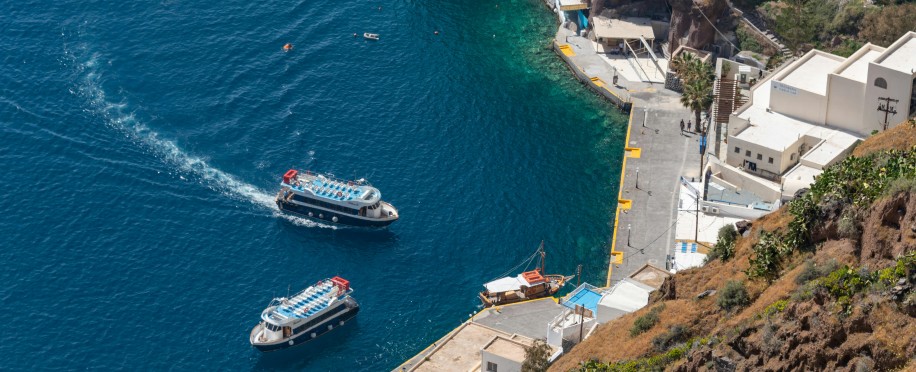Copyright © 2026 lmitac.com All Rights Reserved. Contact - Terms and Conditions - Privacy Policy - Quality Policy - Become an instructor - Vacancies - Sitemap
London Maritime Academy is a trade name for London Premier Groupversion: 2.9.0
London Maritime Academy is a trade name for London Premier Group

Posted on : 10/14/2025, 9:55:00 PM
Last Update : 10/14/2025, 9:55:00 PM
Over the years, all the international efforts in the maritime industry have aimed to improve processes at ports to be more time-efficient, eco-friendly, cost-effective, and taskforce suitable by optimizing all shipping strategies and vessel operations.
Port call optimization is one of the leading business strategies that helps ports and terminals optimize and manage ship berths, arrivals, and traffic based on real-time data and movement studies, leading to better port management, resilience, and efficiency.
This article will outline all about port call optimization through data quality, including port call optimization factors and considerations, key optimized strategies, and the main benefits of existing port call optimization for the shipping in the maritime industry.
Port Call Optimization is the term used to refer to the framework of understanding, managing, and improving a ship's movement and berth in ports based on real-time data and live tracking of the ship in its voyage.
Moreover, port call optimization ensures taskforce and port readiness for ships visiting the ports, with optimal planning, executing, and completing their shipping voyage, which helps in avoiding a huge portion of supply chain disruptions in the shipping industry.
The exchanged real-time data with the international taskforce port call optimization aims to provide better exploration, coordination, facilitation, and collaboration between taskforces, stakeholders, shippers, and service providers, ensuring smoother, smarter, greener, and more efficient shipping operations even in the most crowded space for berths.
When talking about port call optimization, we are talking about one of the most necessary processes in the international maritime shipping industry; however, to ensure efficient port calls, you need to rely on these components at all times:
Efficient port call optimization needs real-time data sharing with the port-centric approach to monitor ship movements, port availability to berth at the required time, and weather and wind conditions, allowing a more efficient decision-making process and improving space utilization.
An advanced digital port interface and platform are a must to implement a successful port call optimization with quality tools, platforms, in-depth insight standards, automation systems, and predictive analytics to ensure port readiness, enable effective arrival scheduling, improve urgent response, and reduce human error across the maritime supply chain.
The main goal of port call optimization is to keep the ports and ship crew involved and interactive; thus, communication is more than a needed solution to streamline smooth data exchange and safe coordination among shipping lines, port authorities, and terminal operators, leading to reduced waiting time and boosting process efficiency.

There are many international strategies used in port calls in the maritime sector; however, based on professional operators, we can say that the most efficient ones are:
JIT arrivals work based on the concept of adjusting a ship's nautical speed at sea to reach the berth point at port exactly when it is available, with a goal to reduce waiting time to berth, avoid extra fuel consumption, and enhance the shipping schedule.
This port call optimization strategy raises or sets fair and transparent coordination between ships, terminals, and ports, as with virtual arrivals, ships can slow down the route when urgent port congestion occurs, while still being treated like they arrive on time. Allowing ports to manage congestion more effectively without higher pressure.
All professional port management training in London highlights the important role of port call efficiency in the success of port management and the shipping industry.
But do not worry if you are not in London, you still can get professional Logistics, Ports, Terminals Courses with one of the London Maritime Academy (LMA) regional offices in Dubai, Istanbul, Rotterdam, Hamburg, or Athens.
Effective port call optimization and study can reduce unnecessary fuel burn during the idle time, which by default will lead to lower greenhouse gas emissions.
The communication and interaction through port call optimization, with the included real-time data, allow better planning and coordination, reduce operational risks, and ensure safer movement and docking for vessels and crews in ports.
The included time saving and fuel-efficient consumption will for sure lead to lower costs for ships, ports, operators, and service providers, which will reflect on the supply chain's final costs.
All the previously mentioned port call optimization benefits allow better shipping practices based on IMO standards on emission reduction, environmental sustainability, and other rules as well.
An efficient port call optimization strategy with all its real-time data sharing is a highly important process in the maritime shipping industry for any working task force onshore and offshore.
Therefore, you need to understand all related information, systems, and processes in the port call optimization with the best maritime training academy that offers accredited certifications and reliable training programs.